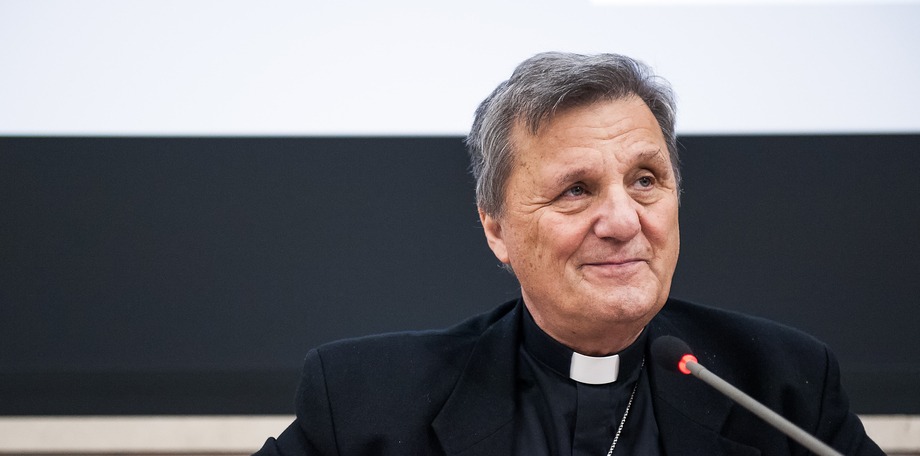The synodal process currently underway in the Church has many challenges ahead, and several of them also concern communication and the way in which the progress of this "journey together" is disseminated in the media. This was affirmed by Cardinal Mario Grech, Secretary General of the Synod of Bishops, in his intervention at the University of the Holy Cross in Rome to present the book A Church in dialoguepublished by the Faculty of Communication on the occasion of its 25th anniversary. These challenges represent, at the same time, an opportunity to learn how to "communicate the Synod effectively", knowing that dialogue must be at the heart of this communication.
Among the elements of difficulty that the Cardinal foresees and that everyone has been able to experience in these first months of the year are synodal journeyMany were identified by Pope Francis himself at the opening of the Synod in October 2021: "the risk of formalism, that is, of focusing on the process; the risk of intellectualism," that is, of seeing the Synod as "a kind of study group" in which "the usual people say the same old things"; and the risk of complacency or indifference, of "not taking seriously the times in which we live". To end up following the usual and fruitless ideological and partisan divisions"; and the risk of complacency or indifference, of "not taking seriously the times in which we live".
Negative readings
There are also the "negative readings" that present the process as something "designed to impose changes in doctrine", suggesting that everything is already decided from the beginning; or the idea - widespread among other groups - that in the end the consultation will not lead to any real change, with no proposal for action but only to a sterile discussion:
"This also raises important questions from a communication point of view about managing expectations regarding the outcomes of the Synod," Grech commented.
Other fears are the risk of the Church becoming even more closed in on itself, in a kind of self-referentiality on internal issues, when we should instead "look to the world, announcing the Gospel to the peripheries and committing ourselves to the service of those in need".
"Recognizing these misinterpretations is the first step in responding effectively," explained the President of the Synod of Bishops.
How to communicate effectively?
How, then, can we effectively communicate the synodal Church? One of the keys can come from "renewing our evangelical mission, in order to give witness to the 'field hospital' Church that we are called to be," the Cardinal reflected. It is necessary, therefore, the ability - also communicative - to show a Church capable of accompanying the people of our time, serving, for example, the people who are "wounded on our roadsides, and also on the digital streets", and without falling into particularisms.
At the heart of this process must be dialogue, which inevitably "begins with listening". In fact, "only by paying attention to who we listen to, what we listen to and how we listen can we grow in the art of communicating," whose core is not a theory or a technique, but "the openness of heart that makes closeness possible," the Cardinal added, quoting Pope Francis in his Message for the last World Communications Day.
It was again the Pontiff at the opening of the Synod who recalled that "true encounter is born only from listening" and from listening with the heart, through which "people feel listened to, not judged; they feel free to tell their own experiences and their own spiritual journey."
For an authentic encounter
Another aspect highlighted by Grech is empathy, the ability to "feel with others", essential for dialogue to grow, to know people where they live "and to assume that their opinions are the fruit of positive intentions". In this way, meeting and listening are truly authentic; a responsibility, by the way, that corresponds to all the baptized, understanding that dialogue "also means resisting preconstituted ideologies without allowing oneself to be really questioned, if not even disturbed, by the word of the other".
In the end, we must be patient and feel at ease in the tensions that we inevitably have to face, "not relying solely on our own abilities, but always invoking the assistance of the Holy Spirit," the Cardinal concluded.









